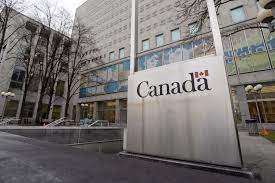
CLIQUEZ ICI pour le français
OTTAWA – B’nai Brith Canada is outraged at the Government’s refusal to release the names of Canadian suspects investigated for World War II war crimes.
The Government said the time involved to gather the information we requested would be “unreasonable” because it would take an estimated 1,285 days, or more than 3.5 years.
B’nai Brith received a letter in July from the Access to Information and Privacy (ATIP) office with an explanation that our request would not be granted.
The issue involves B’nai Brith’s Freedom of Information (FOI) request for the names of individuals who came to Canada after WWII and were later investigated for their involvement in war crimes by the Deschênes Commission, but whose names remain non-disclosed.
“The suggestion that it would take 3.5 years to obtain documents about Nazi war criminals that Canada has known about for decades is deplorable,” said David Rosenfeld, a Matas Law Society member and a lawyer assisting B’nai Brith on the issue. “This response further supports the urgency of B’nai Brith’s request to obtain access to these records – to ensure that such documents are properly preserved and easily accessible to the public and to ensure accountability for Nazi war criminals who may have fled Canada, or who may still be in Canada, and evaded deportation and prosecution.
It appears that the ATIP system is seriously flawed,” Rosenfeld added, “particularly in relation to historical research, preservation and access to vital materials to document the atrocities of the Holocaust and the actions taken, or not taken, to hold those responsible to account.”
“It’s imperative that we expedite these cases and identify the suspects quickly while we still have a few Holocaust victims alive who can act as witnesses,” said Sam Goldstein, B’nai Brith Canada’s Director of Legal Affairs. “If we’re unable to get these documents fairly quickly, we would consider joining the existing case that demands the National Archives speed up response times.”
In 1985, then-Prime Minister Brian Mulroney and his Government established the Commission of Inquiry on War Criminals in Canada, known as the “Deschênes Commission,” after the head of the Commission, Quebec Superior Court Judge Jules Deschênes.
The Commission compiled a list of 774 potential war criminals in Canada. A total of 341 of them never landed or resided in Canada, 21 had landed in Canada but had left for another country, 86 had died in Canada, and four could not be located. The Commission found prima facie evidence against 20 individuals. Another 169 cases were not acted upon. In 1986, the Commission turned the names of the 20 people over to the Government with recommendations on how to proceed in each case.
Canadian prosecutors pressed charges against at least four men on allegations of participation in Holocaust war crimes. One case ended in acquittal. Two cases were dropped when prosecutors had trouble obtaining overseas evidence. The fourth case was stayed because of the defendant’s health.
Since 1998, courts have found that six men misrepresented their wartime activities and could have their citizenships revoked, although this was not done because the evidence was deemed to be circumstantial and insufficient. Another seven people subject to deportation or citizenship-revocation procedures have died.
B’nai Brith Canada established the Matas Law Society – Canada’s new hub for Jewish legal professionals and law students – to help counter the rise in antisemitism and defend human rights in Canada.


